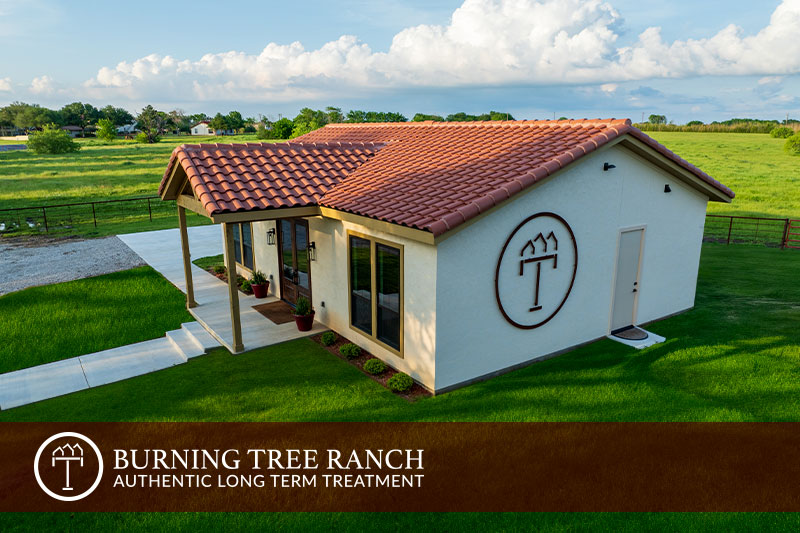We usually only discuss addiction in the context of alcoholism and drug abuse, but addiction is a treatable disease that is often impacted by mental health disorders. Food addiction and eating disorders Food addiction and binge eating disorders are rarely given the attention they deserve when it comes to discussing substance abuse and mental health. They’re often overlooked or untreated in a dual diagnosis because the link to substance use is not always clear.
At Burning Tree, we focus on all kinds of addiction-related behaviors and mental health disorders in our long-term treatment program, and that includes various eating disorders. Today, let’s dive into what’s happening when someone can’t stop eating, even when they desperately want to.

The Reality of Food Addiction and Binge Eating
Let’s be clear: this isn’t about lack of willpower or being a glutton. Food addiction and binge eating disorders are severe conditions with real consequences.
Food addiction typically involves:
- Intense cravings for specific foods
- Continued eating despite negative consequences
- Repeated failed attempts to reduce or control eating
- Withdrawal-like symptoms when certain foods are avoided
Binge eating disorder is characterized by:
- Recurring episodes of eating large quantities of food in a short period
- Feeling a lack of control during binge episodes
- Eating much more rapidly than normal
- Eating until uncomfortably full
- Experiencing shame, distress, or guilt after binging
These conditions often coexist, creating a challenging cycle that’s difficult to break without proper support and treatment.
The Brain’s Response: Food and Drug Addiction Similarities
It gets complicated here: the brain doesn’t distinguish between pleasure sources. The neurological pathways activated are very similar, whether from food or drugs.
It’s not uncommon for individuals in recovery from substance abuse to develop problematic relationships with food or vice versa. Research supports this connection, showing that people with binge eating disorder are more likely to struggle with substance abuse than the general population.
In other words, the link between substance use and eating disorders appears to work both ways, regardless of which condition presents itself first.

Connections to Other Mental Health Disorders
Food addiction and binge eating disorders rarely occur in isolation. They frequently coexist with other mental health conditions, creating a complex web of challenges.
Eating disorders commonly co-occur with other mental health conditions:
- Depression
- Anxiety disorders
- Obsessive-compulsive disorder (OCD)
- Post-traumatic stress disorder (PTSD)
- Personality disorders
This complexity is why a dual diagnosis approach is crucial. Treating one issue without addressing the others is often ineffective and can lead to relapse.
Recognizing the Signs of an Eating Disorder
Identifying food addiction or binge eating disorder can be challenging, especially when substance abuse is also present. You might see a few key signs and behaviors in your loved one.
Physical indicators we can observe include rapid or significant weight fluctuations in relatively short periods, persistent gastrointestinal issues, or dental problems (mainly if purging is involved).
For behavioral and emotional signs, we might see individuals trying to eat in secret or hiding food for later. It’s also common to have extreme mood swings in the context of eating, express shame or guilt about eating habits, or withdraw socially from friends and family, particularly from food-related events.

Impact of Food Addiction on Families and Relationships
Food addiction and binge eating disorders can strain family dynamics and relationships significantly. The secrecy, shame, and denial associated with these conditions can create barriers between the individual and their loved ones.
Family members often feel helpless, frustrated, or angry, unsure of how to offer support without enabling harmful behaviors. It’s crucial to remember that, like substance use disorders, food addiction affects the entire family system.
Seeking Professional Treatment for Feeding or Eating Disorders
Allow me to reiterate – food addiction, binge eating, and other related eating disorders are a severe issue that can have significant mental and physical health consequences. There’s a reason we see and treat these kinds of disorders at Burning Tree Ranch.
If you’re seeing the signs or behavioral patterns in a loved one, especially if you know some amount of substance use is involved, it’s time to seek professional help. However, not all treatment programs can handle the complexities of dual-diagnosis cases.
Effective treatment programs will typically include:
- Cognitive Behavioral Therapy (CBT) to address thought patterns and behaviors
- Nutritional counseling to develop a healthy relationship with food
- Group therapy for building support networks
- Trauma-informed care to address underlying issues
- Dual diagnosis treatment to manage co-occurring mental health conditions
- Family therapy to heal relationships and improve support systems
The importance of addressing co-occurring disorders can’t be overstated. Attempting to tackle eating disorders without addressing underlying mental health or substance use issues is often ineffective and can lead to relapse.

How Can You Support Your Loved One?
If someone you care about is starting their recovery journey from either eating disorders or substance abuse (or both), know that you can help, and your supportive efforts might be invaluable.
Families and loved ones can best help someone in recovery through:
- Education – Educate yourself about these conditions and what treatment looks like.
- Self Care — Our instincts are usually to sacrifice everything to help the other person or solve the problem. But you can’t support your loved one if you’re not first taking care of your own mental and emotional health.
- Family Therapy – Addiction is often a family disease, meaning that the entire family has some contextual role in addiction and recovery. You may consider seeking out and participating in family therapy sessions.
- Creating a Supportive Environment—Whether it’s at home, in the workplace, or in the people and places you often visit, try to consider how your loved one’s environment and behaviors might influence their recovery.
- Open Communication—Make an effort to encourage open, nonjudgmental communication. Sometimes, that means simply sitting and listening with compassion and not trying to solve the problem.
- Exercise Patience – I can’t stress this enough. Recovery is a process, not an event that happens overnight. We often have to remind our clients how long the behaviors around the addiction have been reinforced. Usually, it takes hold over several years.
While your support is important, it’s also essential that your loved one ultimately embraces honesty and personal accountability in a way that allows them to take responsibility for their actions and recovery.

Recovery Is a Long-Term Play, Not a Quick-Fix
I’ve seen individuals overcome deeply entrenched patterns of addiction – to food, substances, or both – and go on to lead fulfilling lives. It’s not because they found a magic solution but because they persevered, allowed themselves the necessary time for healing, and built robust support systems for themselves.
Feeling hopeless in the face of any addiction is a normal reaction, but don’t give up. Your loved one needs support, even if they’re pushing you away. Try to keep in mind that it’s the deep roots of addiction as a disease that influences your loved one’s behaviors, and they’ll need time to heal.
Take it from somebody who has worked with chronic relapsers for years: quick fixes rarely work for deep-seated problems. Play the long game.
Seek comprehensive, long-term help that addresses all aspects of these complex issues. Places like Burning Tree Ranch specialize in treating chronic relapse and co-occurring disorders because we understand the need for thorough, long-term care.
You can always reach out to our team for guidance and support. Take each day as it comes, one at a time, and don’t lose hope. Real change happens through persistent, small steps forward.
Until next time,
Brook




